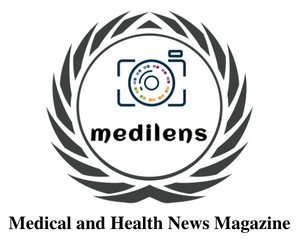King George’s Medical University (Erstwhile CSMMU) is situated in heart of historic city of Lucknow which is capital of Uttar Pradesh State. This is Autonomous Statuary body and one of the topmost Medical Universities in India. KGMU provides healthy environment for the Undergraduate Students to actively participate in Research Studies by encouraging them yearly with specific grants, named as Intramural Research Fellowship, for their study proposals under the mentorship of any senior faculty of department. As per the strength of student, that is 250 for MBBS and 51 for BDS with satisfactory hostel facilities. Admission to respected Courses is being done on the basis of Rank secured in NEET UG/PG. A candidate, who writes for NEET UG by National Testing Agency (NTA), has option to opt for 5 colleges under affiliation of King George’s Medical University.
KGMU has Memorandum of Understandings with different reputed colleges/institutes in world. KGMU is listed in Cochrane. This was the first institute to start plasma therapy as a radical for COVID 19 management. Research Cell of KGMU performs the following work/activities for faculty and students of the University:
- Management of Extramural Research Projects
- Ethics Committee
- Intramural Research Projects
- PhD Program
- Postgraduate seminar series for research capacity building
- Research Methodology Workshops
- Research Showcase
- Research Awards
- Dhavendra Kumar Young Investigator Gold Medal
- Best PhD Thesis Award
- Award for Excellence in Research
University does offer one year rotatory Internship after Graduation on a stipend of 12000 INR per month. If someone wants to apply for an Internship off the campus he can do so after getting a No Objection Certificate from the University.
Campus Life:
Rhapsody is 3 days Annual cultural fest of King George’s Medical University and it is one of the largest cultural fest in State This event usually takes place in the month of December. This event comprises of cultural and academic events with exciting prizes for each section. Basically this is an intercollege event. The Central Library of University is comprised of around 40000 Books, 30000 Bound volumes, 3000 Book Bank, 3207 Thesis and 1088 CD’s. Classroom has capacity of 100, 200 and 600 students for demonstration and lectures respectively. Sports arenas are highly encouraged by Annual Sports Meet every year in Month of November/December.
List of Courses available are:
- MBBS
- BDS
- MD/MS
- MDS
- PG Diploma Courses
- Diploma in psychiatry/mental health nursing
- Diploma in Dental hygiene and Dental Mechanics
- Super speciality Courses(DM/MCh)
- Phil
- Sc. Nursing
- List of Paramedical Courses
- Masters in Hospital Administration
- Post MD-PhD Program
In lockdown period, KGMU was the pioneer of Undergraduate Medical education; this was the first institute to setup online education in UP state. This helped students a lot to continue their academic curriculum remotely.
KGMU has already installed virtual classroom facility on its official website, where one can access to the PPT/PDF of scheduled lectures.
Other Facilities:
- Indian Bank – KGMU (in basement of Central Library) and KGDU branches with ATM service
- Post Office
- Cafeteria (next to Central Library)
- Public Call Office (in main hospital building)
- Three night stay dormitories (rain baseras) for poor patients and attendants..
- Sulabh Shauchalaya complexes – one opposite new Pharmacology Building and the other opposite Gandhi Ward.
- 24 hour running drug shops
- State Government Employees Welfare Canteen
- Public Distribution Shop which provides rations, kerosene etc.
- Police Outpost and Security personnel
- Underground Car Parks
- Juice shops, Parag Dairy, Nescafe Booth etc.
- PABX telephone system linking all points on the campus.
- Free shuttle service to move around patients and attendants from one department to other.
by Dr. Prateek Kumar Dinkar
